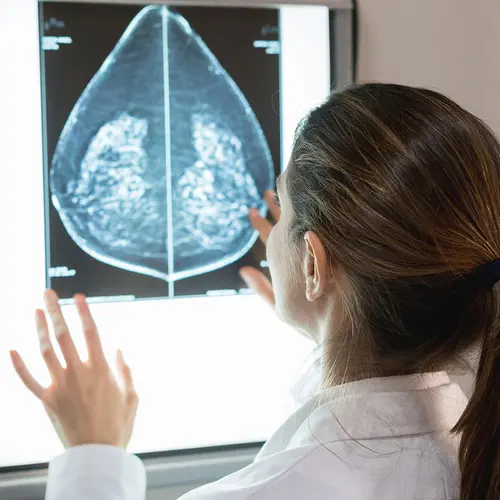Sept. 18, 2024 – People with a common type of early-stage breast cancer may now take another drug called Kisqali that has been shown to significantly reduce the risk of cancer recurrence, the FDA announced Tuesday.
Kisqali is already approved for people with metastatic breast cancer. The new approval means people with HR-positive, HER2-negative breast cancer that is stage II or stage III and at who are at high risk of recurrence can also use the treatment. Kisqali is taken with a hormone therapy called aromatase inhibitors.
In a news release by drugmaker Novartis, Dennis J. Slamon, MD, who led the research study that prompted the FDA approval, called this “a pivotal moment in improving our approach to care.” Slamon is the director of clinical/translational research at UCLA Jonsson Comprehensive Cancer Center in Los Angeles .
The FDA recommendeds that Kisqali be taken for 3 years. The drug comes in pill form and is taken daily for 21 consecutive days, followed by 7 days off treatment.
In a clinical trial, 90% of people who took Kisqali for 3 years with an aromatase inhibitor remained cancer-free, compared to 87% who only took an aromatase inhibitor. The results were the equivalent of a 25% reduced risk of recurrence. Reductions in risk were consistent whether people’s cancer had previously spread to their lymph nodes.
Kisqali works by interfering with substances that play a key role in the growth and survival of cancer cells, and it can also affect healthy cells.
Some people in the clinical trial had low white blood cell levels that can bring infection risk, liver problems, or a certain type of irregular heart rhythm. Side effects of Kisqali include headaches, nausea, and fatigue.
“Breast cancer treatment can take a toll on your physical and mental health, and you may worry about the risk of your cancer coming back,” said Valarie Worthy, a registered nurse who holds a master of science in nursing, according to the Novartis news release. Worthy is co-founder and vice president of community outreach and engagement for Touch, The Black Breast Cancer Alliance. “This risk is different for everyone, depending on many factors, but should not be underestimated.”
